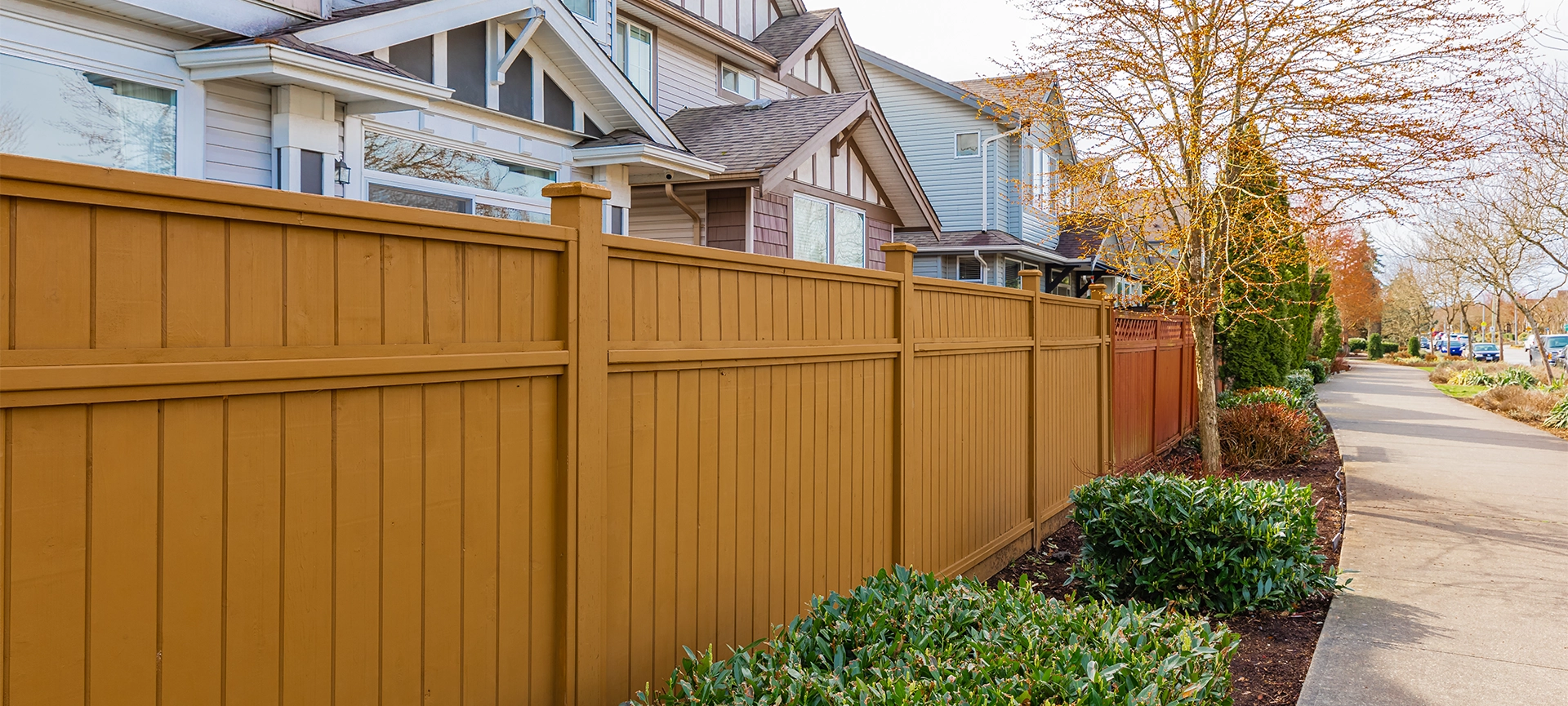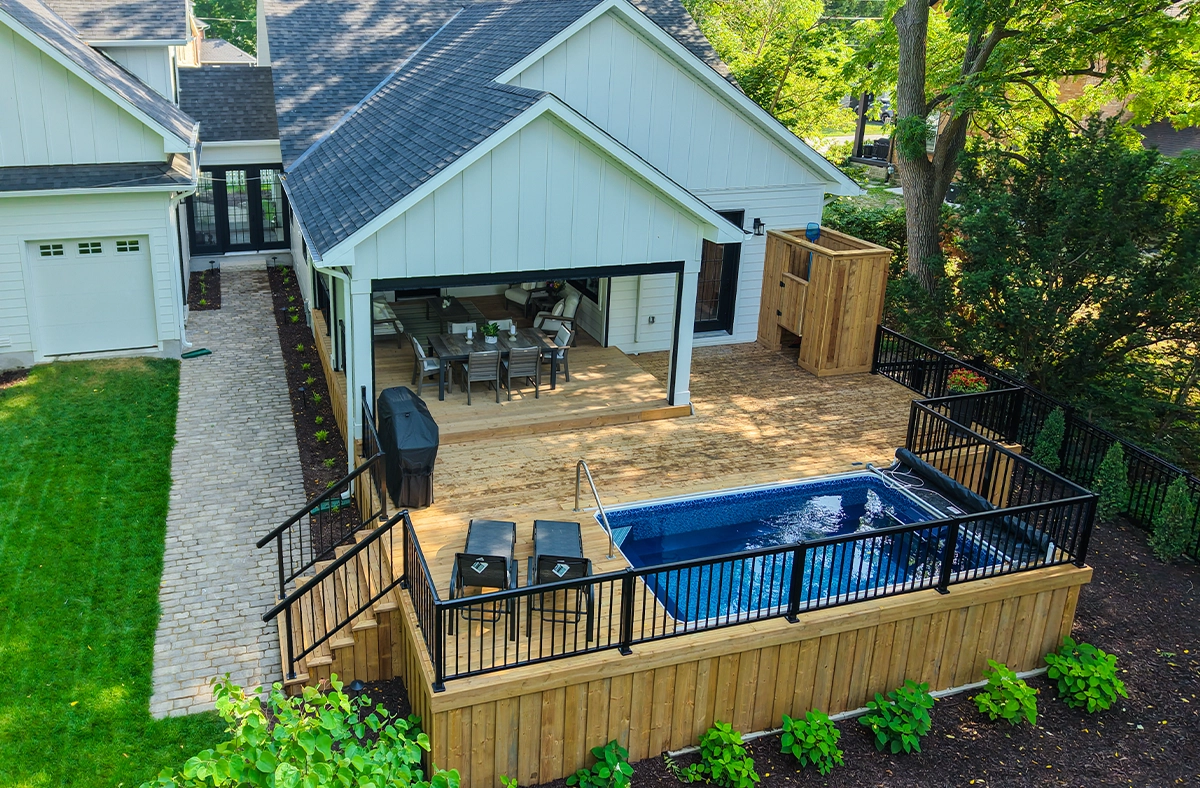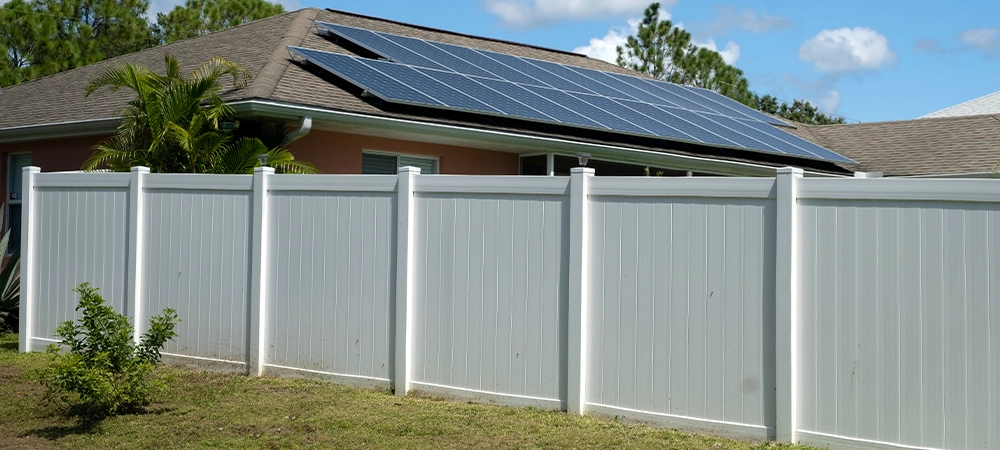
Toronto Fence Pricing in 2025: Cost Per Linear Foot Breakdown
Planning a fence installation in Toronto? With material costs and labour rates continuing their upward trend in 2025, understanding exactly what you’ll pay per linear foot has never been more crucial for homeowners. Whether you’re installing a privacy fence for your backyard retreat or a decorative front yard boundary, getting accurate pricing information can mean the difference between a successful project and budget shock.
At Green Side Up Contracting, a leading Toronto fence installer, we understand the importance of transparent pricing and quality craftsmanship. We’ll break down everything you need to know about fence costs in Toronto for 2025, from basic chain link installations to premium composite fencing options. We’ll explore the key factors driving pricing changes, help you understand what affects your final bill, and provide the practical insights you need to make informed decisions about your fencing project.
Why Understanding Fence Pricing in 2025 Matters
Toronto homeowners are approaching fencing projects with unprecedented scrutiny in 2025. The lingering effects of supply chain disruptions, combined with persistently high skilled labour costs, have fundamentally shifted how many homeowners budget for property improvements.
The fence installation market in Toronto has seen material costs stabilize somewhat after the dramatic spikes of 2021-2022, but the new baseline remains 30-60% higher than pre-pandemic averages. Labour costs continue to climb due to workforce shortages in the skilled trades, making professional installation a significant portion of any fencing project budget. Higher costs are often seen for custom designs, taller fences, or projects on difficult terrain, as these factors increase installation expenses.
For Toronto homeowners, this means that a fence installation that might have cost $8,000 in 2019 could easily reach $12,000-15,000 today for the same specifications. Understanding these market dynamics helps set realistic expectations and avoid the sticker shock that catches many property owners off guard. Fence pricing can vary widely depending on material, design, and site conditions.
Average Fence Cost per Linear Foot in Toronto (2025 Update)
The Toronto fence market in 2025 reflects a mature industry adapting to persistent cost pressures. Most residential fence installations fall within the $45-$150 per linear foot range, with material choice being the primary cost driver. In 2025, the average cost to install a new fence in Ontario, Canada, ranges between $40 and $95 per linear foot, providing homeowners with a broad spectrum of pricing options depending on their specific needs. Different materials and styles come with distinct price points, allowing homeowners to choose based on their budget and preferences.
Current market trends show increased demand for low-maintenance options like vinyl fences and composite fencing, driven by homeowners seeking to minimize long-term costs. At the same time, budget-conscious buyers are gravitating toward pressure-treated pine and chain link fences for their cost-effectiveness. Evaluating different materials is essential, as each type influences both the initial expense and long-term durability.
Quick Comparison Table
| Fence Type | Average Cost (per ft) | Installation Complexity | Durability | Maintenance |
|---|---|---|---|---|
| Wood Fence | $45–$70 | Medium | Moderate | Moderate |
| Vinyl Fence | $55–$90 | Easy | High | Very Little Maintenance |
| Chain Link | $35–$60 | Easy | Moderate | Very Little Maintenance |
| Aluminum | $60–$110 | Medium | High | Low |
| Wrought Iron | $90–$150 | Complex | Very High | Moderate |
Factors That Affect Fence Cost in Toronto
Several key factors determine your final fence cost, and understanding these variables helps you plan more accurately for your fencing project.
Location and accessibility play a crucial role in installation costs. Properties in established Toronto neighbourhoods with narrow lot access or challenging terrain can add 15-25% to base installation costs. Most contractors charge extra for difficult terrain or limited access routes that require specialized equipment. The installation area must be properly prepared and assessed to ensure a smooth and cost-effective process.
Fence height significantly impacts both material costs and installation complexity. A privacy fence that is 6 feet tall requires substantially more material than a 4-foot decorative boundary, which increases both material and labour costs. Taller installations also demand more robust fence posts and a deeper, solid foundation to meet local laws.
Decorative features like decorative post caps, custom gates, or integrated lighting systems can add $15-50 per linear foot to your base cost. Gate brackets, frame kits, specialized hardware, and custom finishes all contribute to the overall project expense.
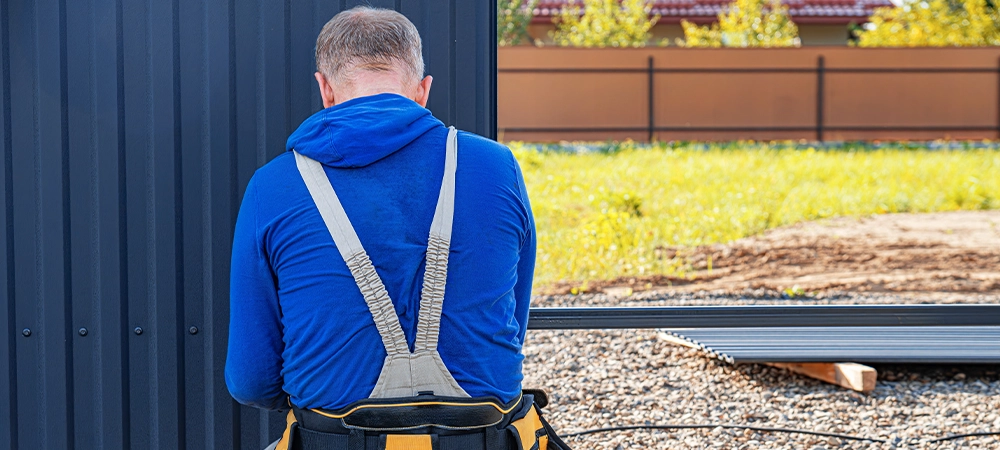
Material Cost Fluctuations in 2025
The post-pandemic supply chain recovery has brought some stability to material pricing, though costs remain elevated compared to historical norms. Choosing the right fencing material is crucial, as it affects both the upfront cost and long-term maintenance requirements. Weather-resistant materials like galvanized steel and premium vinyl have seen particular demand as Toronto homeowners prioritize durability over initial cost savings.
Cedar and pressure-treated pine prices have stabilized but remain volatile due to ongoing trade policies and forestry regulations. Composite fencing materials have actually become more competitive as production scales have increased and manufacturing efficiency has improved.
Labour Costs Across the GTA
Professional fence installation typically costs $25-45 per linear foot for skilled labour alone, representing 40-60% of most project budgets. Skilled labour remains the largest cost component for most fence installations. Skilled labour ensures quality installation and long-term durability, with experienced crews commanding premium rates during peak installation seasons. The labour installing a new fence often requires multiple workers, especially for larger projects or more complex fencing materials.
Breakdown by Material Type
Wood Fence Cost (Cedar, Pressure-Treated, Pine)
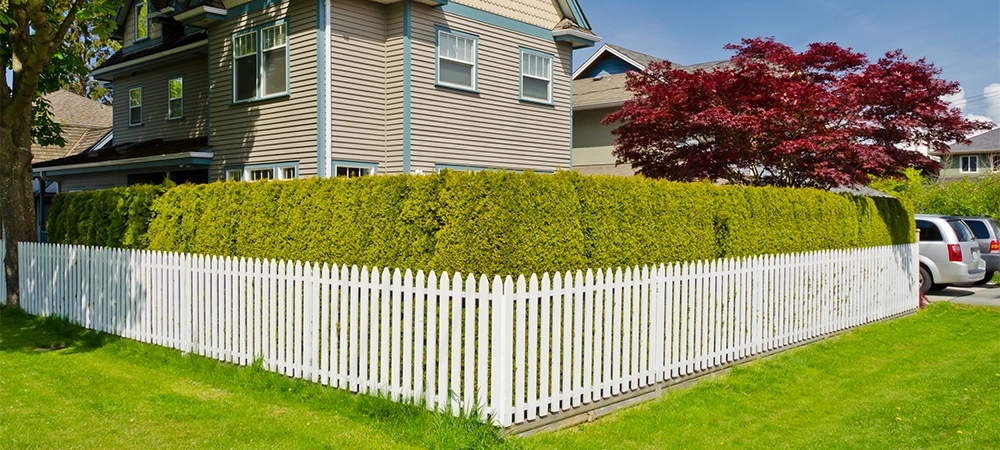
Wood fences remain popular among Toronto homeowners for their natural appearance and versatility. Pressure-treated pine offers the most economical option at $45-60 per linear foot installed, while cedar commands premium pricing at $55-85 per linear foot due to its natural weather resistance and attractive grain patterns.
The popular 2025 trend toward vertical cedar slats with stained finishes adds approximately $8-15 per linear foot to standard wooden fence installations. These modern designs offer enhanced curb appeal with clean lines while maintaining the natural warmth that makes wood fences attractive to many homeowners.
Cedar requires less maintenance than pressure-treated alternatives but benefits from regular staining every 2-3 years to maintain its appearance and weather resistance. Pressure-treated pine typically requires more frequent maintenance but offers better initial cost effectiveness for budget-conscious installations.
Vinyl Fence Cost
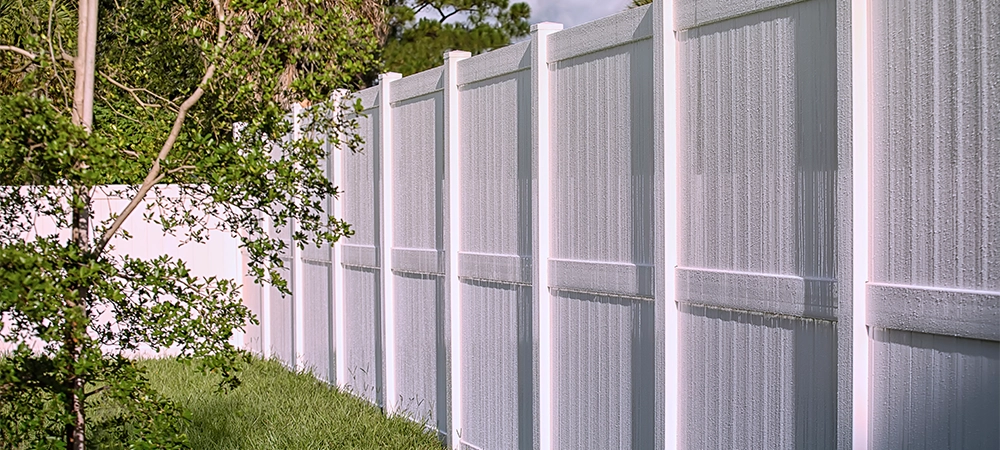
Vinyl fences cost $55-90 per linear foot installed and have gained significant popularity due to their very low maintenance requirements and excellent weather resistance. Quality vinyl installations can last 25-50 years with minimal upkeep, making them attractive for homeowners seeking long-term value.
New eco-friendly vinyl options have emerged in 2025, manufactured from recycled materials and offering improved UV resistance. These environmentally conscious alternatives typically add $5-10 per linear foot to standard vinyl pricing but appeal to sustainability-minded homeowners.
The primary advantages of vinyl fences include their resistance to rot, insects, and weathering, plus they never require painting or staining. However, they can become brittle in extreme cold and may show impact damage more readily than other materials.
Chain Link Fence Cost
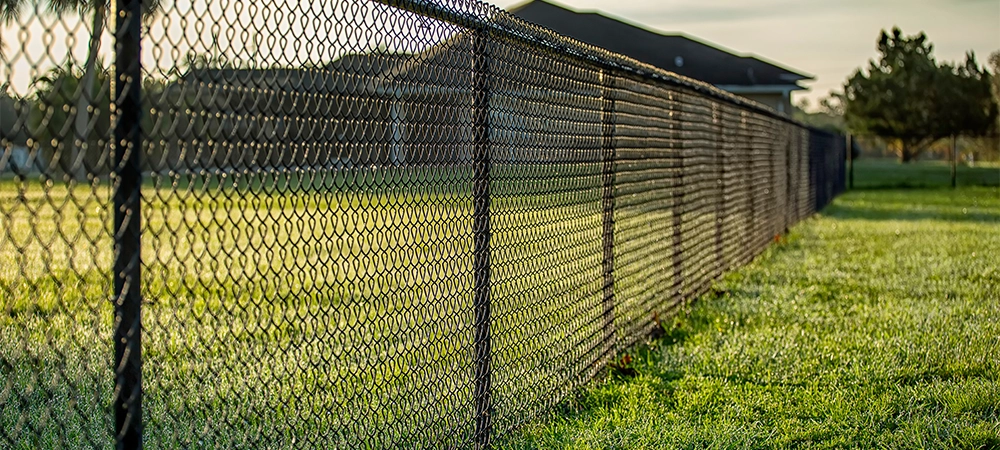
Chain link fences represent the most economical fencing option at $35-60 per linear foot, with galvanized steel chain link on the lower end and vinyl-coated chain link commanding slightly higher prices. These installations work particularly well for dog runs, utility areas, and properties where security takes priority over aesthetics.
Galvanized chain link offers excellent durability at minimal cost, while vinyl-coated options provide colour choices and slightly improved appearance. Both options require very little maintenance and can last 15-25 years with proper installation.
Pros and Cons of Chain Link Fencing:
Pros:
- Lowest initial cost
- Quick installation
- Excellent security
- Minimal maintenance
- Good for pet containment
Cons:
- Limited privacy
- Industrial appearance
- Can rust over time (galvanized)
- May not enhance property values
Aluminum & Wrought Iron Fence Cost
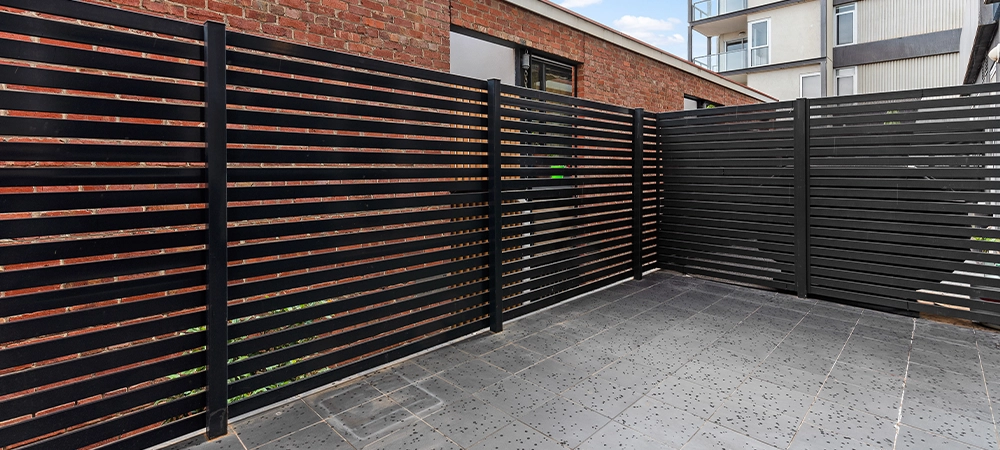
Premium metal fencing options range from $60-150 per linear foot, depending on design complexity and finish quality. Aluminum fences offer excellent durability with lower maintenance requirements, while wrought iron provides classic elegance with slightly higher maintenance needs.
Decorative aluminum fences cost $60-110 per linear foot and offer powder-coated finishes that resist corrosion and fading. These installations provide excellent longevity with minimal maintenance requirements, making them popular for front yard applications where curb appeal matters.
Wrought iron fence installations command $90-150 per linear foot due to their custom fabrication requirements and complex installation process. These premium installations offer unmatched elegance and security but require periodic maintenance to prevent rust and maintain their appearance.
Composite Fence Pricing
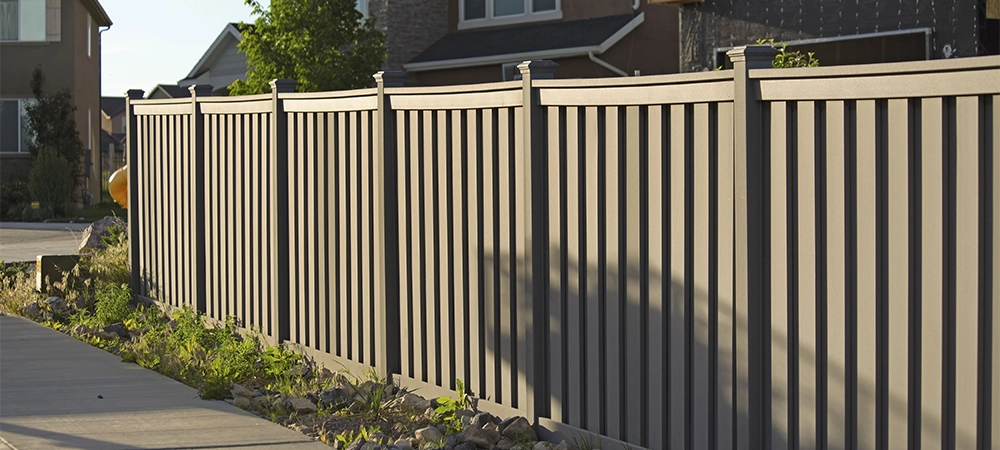
Composite fencing has gained significant traction among eco-conscious homeowners in 2025, with installations typically costing $85-150 per linear foot. These durable materials combine wood fibres with plastic polymers to create low-maintenance fences that resist rot, insects, and weathering.
Compared to wooden fence alternatives, composite fencing offers superior longevity and requires virtually no maintenance beyond occasional cleaning. While the initial cost exceeds most wood fences, the long-term value proposition appeals to homeowners seeking premium durability.
When compared to vinyl fence options, composite materials offer more natural textures and a wood-like appearance while maintaining similar maintenance advantages. The price premium over vinyl typically ranges from $10-25 per linear foot but provides enhanced aesthetic appeal.
Extra Costs You Might Not Expect
Permits & Municipal Regulations
Toronto’s fence height restrictions and local zoning laws can add $150-400 to your project cost, depending on your specific requirements. Properties in heritage districts or areas with special zoning may face additional restrictions that impact design choices and approval timelines.
Most residential fence installations under 6 feet don’t require permits, but property line considerations and neighbour agreements may still apply. Local laws vary by neighbourhood, so checking requirements early in your planning process helps avoid delays and unexpected costs.
Demolition or Removal
Old fence removal typically costs $8-18 per linear foot and can significantly impact your project budget. Complex removals involving concrete footings or integrated landscaping can add $6 to $15 per linear foot to the installation price, while simple panel replacements might require minimal removal costs.
Many homeowners underestimate fence removal costs, particularly when dealing with older installations with substantial concrete footings. Planning for removal costs during initial budgeting prevents unwelcome surprises during project execution.
Gates & Hardware
Custom gates range from $350-1,200, depending on size, material, and hardware complexity. Gate brackets, hinges, locks, and automated opening systems can add substantial costs to your fencing project beyond the base per linear foot pricing.
Standard walk-through gates typically cost $350-600 installed, while larger vehicular gates can reach $800-1,200 or more with automated systems. High-quality hardware and security features add to these base costs but enhance functionality and longevity.
Land Grading or Digging
Properties with rocky soil or significant grade changes may require additional site preparation costing $5-15 per linear foot. Toronto’s clay-heavy soil conditions can complicate fence post installation and may require specialized equipment or techniques. Safe digging practices are essential to avoid damaging underground utilities such as water lines or wireline infrastructure during fence installation.
Slope corrections, drainage considerations, and property line adjustments all contribute to site preparation costs. Professional contractors typically assess these factors during initial consultations to provide accurate project estimates.
Seasonal Surcharges
Spring and summer installations often carry 10-20% premium pricing due to high demand during peak construction seasons. Many homeowners save money by scheduling installations during early spring or late fall when contractors offer more competitive pricing.
Weather considerations also affect installation timelines and costs. Winter installations may be possible, but often require specialized techniques and may cost more due to challenging working conditions.
Cost Differences Between DIY and Professional Installation
DIY Fence Costs
Material-only pricing for fence installation typically runs 40-60% of total installed costs, meaning a $6,000 professional installation might cost $2,500-3,500 in materials for DIY completion. However, this approach requires significant time investment and specialized tools. Measuring tapes are essential for ensuring accurate measurements during DIY fence installation.
DIY fence installation can save on labour costs, but mistakes can lead to higher expenses down the line. DIY installations carry risks, including uneven fence posts, warranty issues with materials, and potential code violations that could require costly corrections. These can lead to issues like warping, leaning, or rotting, which increase future maintenance costs. The time investment for weekend fence installation often exceeds homeowner expectations, particularly for larger projects.

Professional Installation Costs
Professional fence installation includes design consultation, permit assistance, proper foundation work, and warranty coverage. Choosing a reputable fencing contractor is essential to ensure your project complies with all permits and local regulations.
Most contractors provide 1-5 year warranties on workmanship, plus they handle any issues with local codes or neighbour disputes.
A typical 100-linear-foot fence installation takes 2-4 days for professional crews compared to several weekends for most homeowners. Professional installers also have specialized equipment for post-hole digging, particularly important in Toronto’s challenging soil conditions.
Quality craftsmanship from experienced contractors ensures proper post spacing, adequate foundation depth, and compliance with local building codes. These factors contribute to fence longevity and help avoid costly repairs or replacements.
At Green Side Up Contracting, we combine premium materials, expert installation, and transparent pricing — so you always know exactly what you’re paying for.
Comparing Fencing Companies in Toronto
Getting accurate quotes requires detailed specifications and on-site evaluations from multiple contractors. Homeowners should obtain quotes from different contractors to compare costs and available options before making a decision. Reputable fencing companies provide written estimates that break down material costs, labour charges, and any additional fees clearly.
When evaluating fence contractors, verify WSIB coverage, liability insurance, and recent customer references. Established contractors should readily provide proof of insurance and examples of recent installations similar to your project requirements.
Detailed estimates and comprehensive contracts protect both homeowners and contractors by clearly outlining project scope, timelines, and payment schedules. Avoid contractors who demand large upfront payments or provide only verbal estimates.
Best Fencing Options by Purpose
For Privacy
Wood, vinyl, or composite fences provide excellent privacy options with solid panels that block sight lines effectively. Cedar privacy fence installations remain popular for their natural appearance, while vinyl fences offer superior longevity with minimal maintenance requirements. However, pressure-treated pine is less recommended for privacy fencing due to its environmental impacts and durability concerns.
For Security
Wrought iron and chain link fences with privacy slats offer excellent security features while maintaining visibility for surveillance purposes. These installations often incorporate specialized gate hardware and locking mechanisms for enhanced protection.
For Aesthetic Appeal
Decorative aluminum fences and hybrid designs combining multiple materials create attractive property boundaries that enhance curb appeal. These installations often feature custom design elements and premium finishes that complement home architecture.
For Budget-Conscious Buyers
Pressure-treated pine and basic chain link fencing provide functional boundaries at minimal cost. These cost-effective options work well for rear property lines or utility areas where aesthetics take secondary priority to function.
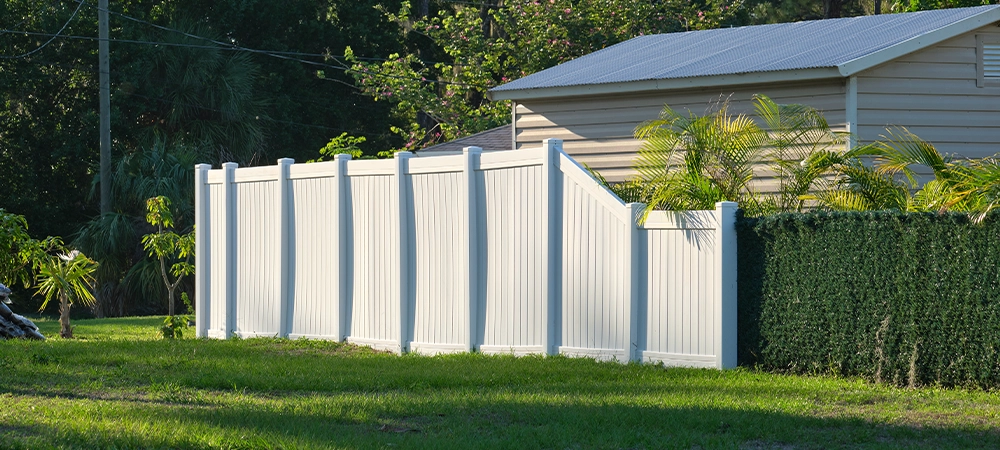
Fence Lifespan and Maintenance Costs
Different fence materials offer varying lifespans ranging from 10-50 years, depending on material quality and maintenance practices. These considerations are especially important for residential properties, where long-term value and appearance matter. Understanding long-term costs helps homeowners make informed decisions about initial investment versus ongoing expenses.
Wood fences typically last 10-20 years with regular maintenance, including staining or painting every 2-4 years. Annual maintenance costs average $50-150 for typical residential installations, depending on fence size and material requirements.
Vinyl and aluminum fences require minimal annual maintenance, typically just cleaning, making them attractive for homeowners seeking low-maintenance solutions. Composite fencing similarly requires little ongoing maintenance beyond occasional cleaning and inspection.
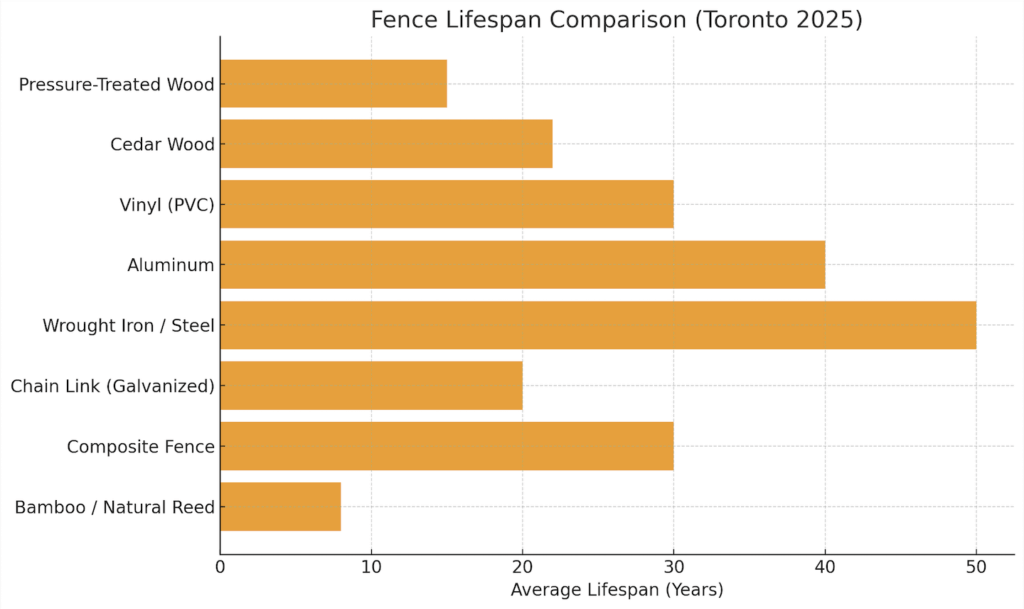
How to Save Money on Fence Installation in Toronto
Scheduling fence installation during late fall or winter can provide savings of 10-20% compared to peak season pricing. Many contractors offer discounted rates during slower periods to maintain steady work schedules.
Coordinating fence installation with neighbours can reduce costs through shared installation expenses and bulk material purchasing. This approach works particularly well for property line fences where neighbours share installation benefits.
Reusing existing fence posts or hardware can provide modest savings if existing infrastructure meets current installation requirements. However, mixing old and new components may compromise overall fence integrity and appearance.
Choosing standard fence heights and panel designs reduces customization costs and speeds installation. Custom features and non-standard dimensions typically add 15-30% to base installation costs.
Bundled pricing is also an option to consider, as purchasing fencing materials or services together as a package can help you save on overall fence costs.
Cost Breakdown Example – 100 Linear Feet of Fence
| Fence Type | Total Estimated Cost (2025) | Installation Included | Notes |
|---|---|---|---|
| Wood (Cedar) | $4,800–$6,500 | Yes | Requires staining every 2 years |
| Vinyl | $5,500–$7,000 | Yes | Virtually maintenance-free |
| Chain Link | $3,800–$5,200 | Yes | Add slats for privacy |
| Aluminum | $6,000–$9,500 | Yes | High-end, long lifespan |
These estimates include professional installation, basic gate installation, and standard site preparation. Additional costs for permits, complex terrain, or premium features would increase these base estimates accordingly.
Toronto Fence Permit & Bylaw Guide
Toronto’s fence height restrictions limit most residential fences to 6 feet in rear yards and 4 feet in front yards without special permits. Heritage districts and specific zoning areas may have additional restrictions affecting material choices and design options. If you’re considering building a new fence, contact Green Side Up for a personalized quote.
Permit applications typically take 2-4 weeks for approval and cost $150-400, depending on project scope and complexity. Working with experienced contractors helps navigate permit requirements and ensures compliance with local regulations.
Boundary disputes can be avoided through proper surveying before fence installation. Professional surveyors cost $500-1,200 but provide legal clarity about property lines and prevent costly disputes with neighbours.
Trends in Fence Design for 2025
Modern horizontal slat designs have gained popularity among Toronto homeowners seeking contemporary aesthetics. These installations typically cost 10-20% more than traditional vertical installations due to increased material and labour installation requirements.
Black aluminum and matte finishes offer sophisticated alternatives to traditional white or natural finishes. These premium options add $5-15 per linear foot but provide a distinctive appearance that enhances modern home designs.
Eco-friendly and composite fence materials continue gaining market share as environmentally conscious homeowners prioritize sustainability. These materials often cost more initially but offer superior longevity and reduced environmental impact.
Integration with landscaping and lighting systems creates comprehensive outdoor design solutions. These installations require coordination between multiple trades but result in cohesive outdoor spaces that enhance property value and enjoyment.
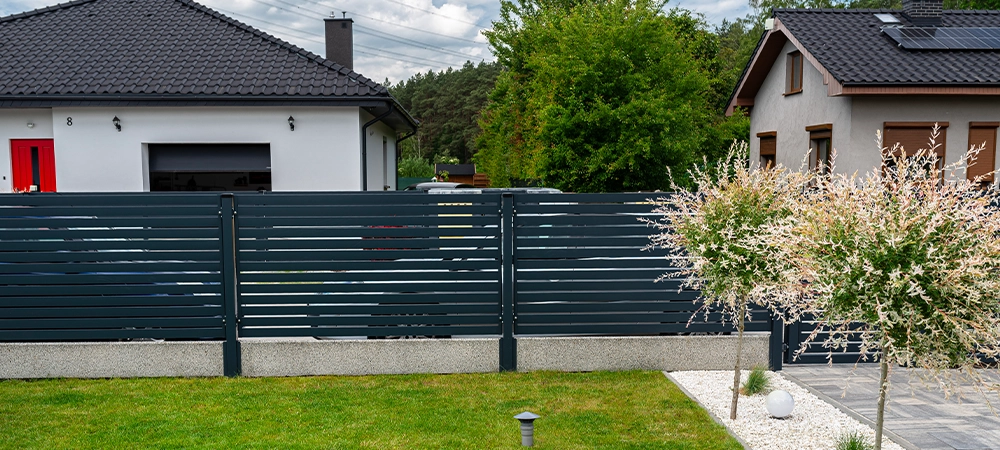
Choosing the Right Fence for Your Property
Matching fence materials to home architecture ensures aesthetic harmony and maximizes property value. Traditional homes often benefit from wooden fence installations, while contemporary properties may suit aluminum or composite alternatives better.
Balancing privacy, aesthetics, and maintenance requirements helps homeowners select optimal fencing solutions for their specific needs. Privacy fence installations work well for rear yards, while decorative options enhance front yard appeal.
Considering resale value and neighbourhood style helps ensure fence installations complement rather than detract from property values. Working with professional landscaping contractor teams provides design expertise that maximizes both function and aesthetics.
FAQs
Do I need my neighbour’s permission to build a fence in Toronto?
While Toronto bylaws don’t require neighbour permission for fences on your property, it’s courteous and often practical to discuss plans with adjacent property owners. For fences directly on property lines, shared costs and maintenance agreements can benefit both parties and prevent future disputes.
What’s the cheapest fence material for large backyards?
Chain link fencing offers the lowest cost per linear foot at $35-60, making it ideal for large areas where budget is the primary concern. For improved aesthetics while maintaining affordability, pressure-treated pine fencing at $45-60 per linear foot provides better appearance with reasonable cost effectiveness.
How long does a typical fence installation take in Toronto?
Most residential fence installations take 2-5 days, depending on project size, material complexity, and site conditions. A standard 100-foot privacy fence typically requires 2-3 days, while larger projects or challenging terrain may extend installation time to a full work week.
Can I replace a few damaged panels without replacing the entire fence?
Yes, individual fence panels can typically be replaced if the fence posts and frame remain structurally sound. However, matching materials and finishes for older installations can be challenging, and partial replacements may not blend seamlessly with weathered existing sections.
Are composite fences environmentally friendly compared to vinyl or wood?
Composite fences often incorporate recycled materials and require no chemical treatments, making them environmentally competitive with traditional alternatives. While vinyl fences last longer and require less replacement, composite materials offer better end-of-life recyclability and reduced chemical treatment requirements compared to pressure-treated wood options.
Let’s Turn Your Backyard Vision Into Reality
Planning a fence installation represents a significant investment in your property’s functionality and value. At Green Side Up Contracting, we combine premium materials, expert installation, and transparent pricing — so you always know exactly what you’re paying for.
Our experienced team is dedicated to delivering quality craftsmanship and tailored solutions that meet your unique needs. Contact us today to schedule a free consultation and get a detailed quote for your Toronto fencing project. Let’s build a fence that not only enhances your property’s curb appeal but also stands strong for years to come.


